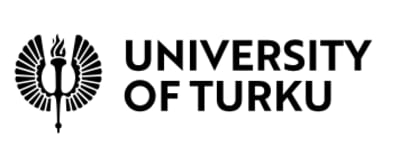
Master's Degree Programme in Information and Communication Technology: Robotics and Autonomous Systems
University of Turku

Key Information
Campus location
Turku, Finland
Languages
English
Study format
On-Campus
Duration
2 years
Pace
Full time
Tuition fees
EUR 12,000 / per year *
Application deadline
22 Jan 2025
Earliest start date
Aug 2025
* free for citizens of EU/EEA countries or Switzerland, for citizens of non-EU/EEA countries €12,000/academic year
Introduction
Discover all degree programmes of the University of Turku
Build the future with robotics
The Master’s Degree Programme in Information and Communication Technology provides versatile and high-quality ICT education in selected fields of ICT, with an established reputation in innovative interdisciplinary and international education.
The Robotics and Autonomous Systems specialisation track prepares its students for challenging software and hardware-oriented research and development tasks on embedded intelligent systems in industry, society and academia. Graduates’ employment prospects are good in Finland, in Europe and globally. You can tailor the direction of your studies toward a hardware or software emphasis by elective studies in both major and minor subjects.
You will get a strong knowledge base for designing and implementing autonomous and intelligent systems. For example, the programme focuses on utilising algorithms in embedded systems, such as drones and small unmanned ground vehicles (UGV), whose computing capacity is limited. In addition, the programme focuses on various hardware and software architectures, hardware accelerators, reconfigurable circuits, and device-specific programming, with a preference to integrate intelligence and sensors into actuators. Individual and group assignment projects are related to and are an integral part of several courses. Projects and courses utilise different robotic platforms from aerial robotics to collaborative robots.
The track educates professionals in various positions in research, development, and design in robotic systems and technologies such as autonomous robots and smart industrial IoT systems. You will learn to become prepared for a range of challenging tasks from basic robotic operations like perception, mapping, and navigation to the design flow of autonomous and robotic systems.
Chat with current students to learn about student life in Turku
Academic Excellence & Experience
Embedded Intelligent systems are everywhere, increasingly so. There is an increasing need for highly skilled and creative engineers, system architects, specialists, and innovators in the autonomous and robotic systems industry in the Turku region, other regions in Finland, Europe, and globally. The Robotics and Autonomous Systems programme educates future drivers with a strong potential for different tasks from research to design in industry and academia.
Specialisation Tracks
The specialisation in Robotics and Autonomous Systems is one of five tracks in the Master’s Degree Programme in Information and Communication Technology. The programme has an international double-degree collaboration with the European Institute of Innovation and Technology (EIT) Master School and offers four other specialisation tracks:
Want to receive deadline reminders, event invitations and tips once a month to your email?
Subscribe to the Future with UTU Newsletter sent by Admission Services of the University of Turku.
Admissions
Curriculum
Program Structure
The program consists of the following sections:
- Joint advanced studies of the ICT degree program, 20 ECTS
- Core module in Robotics and Autonomous Systems, 20 ECTS
- Advanced studies in Robotics and Autonomous Systems, 10 ECTS
- Master’s thesis, 30 ECTS
- Thematic module or minor subject, 20-25 ECTS
- Elective studies, 15-20 ECTS
Master's Thesis & Topics
In the master's thesis, a student must prove their ability to do scientific work and master relevant research methods. The student also must prove their knowledge of the research field and skills in scientific writing. In writing the master’s thesis, the student needs to apply their technological skills, abilities, and expertise to identify an engineering problem, study its relevance to the field, propose and design a solution to the problem, test and analyze the solution, and evaluate its usefulness.
The thesis is often commissioned by a company, meaning that an efficient and capable student may have the chance to get directly employed by the company commissioning the thesis, potentially leading to a successful career in the industry. On the other hand, an academia-oriented student might seek a thesis topic in a research group at the university and target a Ph.D. candidate position upon completion of an academically merited master’s thesis.
Research areas are multi-robot systems, autonomous robots, and edge computing. Topics of recently completed master’s theses include:
- A Study on UWB-Aided Localization for Multi-UAV Systems in GNSS-Denied Environments
- Formation Control Algorithms With Limited or No Communication
- Neural Network Implementation of FPGA and Accuracy Comparison
- Introducing an Autonomous Warehouse with Multidimensional Movement Patterns and Collision Detection for AGVs
- Embedded AI and Human-Sensing in Intelligent Buildings
- VSLAM and Navigation System of Unmanned Ground Vehicle Based on RGB-D Camera
- Data Reduction Methods of Audio Signals for Embedded Sound Event Recognition
- Acoustic Data Transmission for Embedded Software Platforms
- Design and Implementation of UHF RFID Smart Readers
- An Intelligent Circular Economy Upstream Monitoring & Optimization System Based on Industrial Internet of Things
Program Outcome
Competence Description
Upon completion of the Robotics and Autonomous Systems specialization track, you will be able to design and implement hardware accelerators and embedded systems for different sets of sensors and data processing approaches. You will understand the basic concepts of robotic perception, mapping, and navigation, learn to acquire data from different sensors, and convert it for visualization and analysis. You will be able to utilize different approaches for the design of control systems in robotics. In addition to technical content, the degree content also pays attention to other working life skills needed for example in a career as an expert, an entrepreneur, or a researcher.
Scholarships and Funding
Scholarship Opportunities
The University of Turku supports merited and motivated students with generous scholarships. The university offers these scholarships to students pursuing Master's level studies who are subject to tuition fees.
Scholarships are awarded based on academic excellence, and you can apply for a scholarship by simply answering “yes” to the corresponding question in the online application form when you apply for the program.
One type of scholarship covers the whole tuition fee for two years for Master’s degree programs. In addition to that, there is a scholarship for the best applicants that covers tuition fees and includes an additional grant of €5,000.
Approximately 30 % of the admitted students are awarded a scholarship by the University of Turku.
Gallery
Career Opportunities
Job Options
The employment percentage of those holding an M.Sc.(Tech.) degree is high in Finland. Depending on the personal study plan of a student, the Smart Systems major provides competence for a wide variety of jobs, to mention a few for example:
- Embedded systems/solutions engineer/developer
- Embedded systems R&D test engineer
- Wireless embedded software engineer
- Robotic systems software engineer
- Internet of things solutions architect
- Hardware engineer
- Automotive systems engineer
- Autonomous vehicle systems engineer
Career in Research
Master's Degree (Technology) provides eligibility for scientific postgraduate degree studies. Postgraduate degrees are doctoral and licentiate degrees. Degrees can be completed within the University of Turku Graduate School (UTUGS) and Doctoral Programmes.